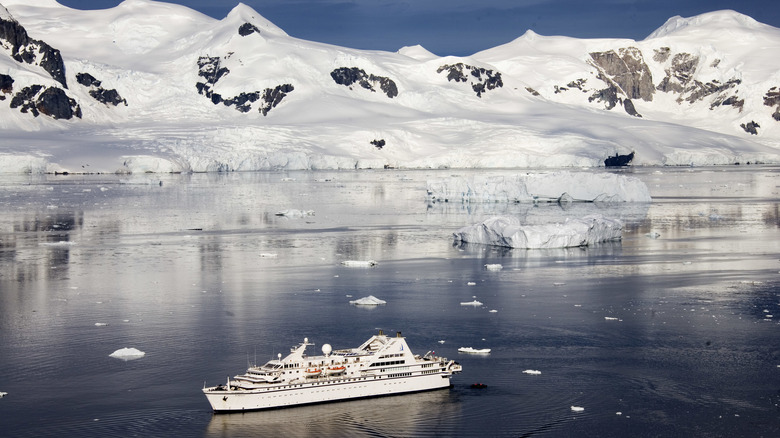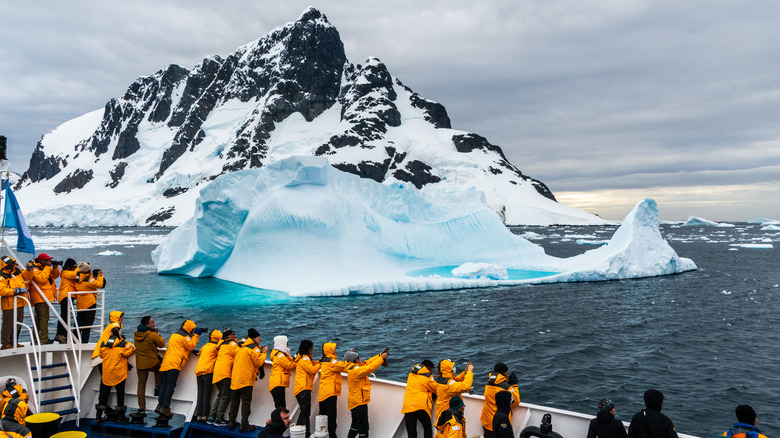This Wildly Popular Continent For Cruises Just Got A New US Travel Advisory Alert
Sometimes the most popular cruise destinations also require the most caution. This appears to be the case for Antarctica, where even the most remote corners are now within reach to adventurous travelers. While the icy continent's popularity may be at an all-time high, the U.S. Department of State recently issued a Level 2 travel advisory, urging Americans to "exercise increased caution" when visiting. Antarctica has always been a unique and challenging destination, but a recent increase in "extreme and unpredictable weather" has prompted the advisory.
Another reason for the Level 2 warning is the continent's extreme isolation and lack of sufficient emergency services to support the nearly 100 cruise ships that travel to its shores. There is also no U.S. consulate in Antarctica, which increases the risk to travelers in the event of an emergency. While the State Department is advising caution, it's not currently discouraging travel. A Level 3 advisory would recommend reconsidering travel, and a Level 4 warning would advise canceling plans altogether due to life-threatening risks.
If you already have an Antarctica cruise booked — or were planning one in the near future — there's no need to change your plans. However, it is recommended that you take extra precautions, such as getting travel insurance and reviewing the things the insurance does and doesn't cover. You should also book with a cruise company that's part of the International Association of Antarctica Tour Operators (IAATO), enroll in the Smart Traveler Enrollment Program (STEP), and prepare an emergency contingency plan.
Should you take a cruise to Antarctica?
It's still safe to book an Antarctica cruise, but the continent's rapid increase in tourism has raised ethical concerns, particularly around environmental impacts. According to data from the IAATO, more than 80,000 tourists set foot on the continent between 2024 and 2025, while over 36,000 tourists cruised offshore. These are unprecedented numbers for a destination that has seen visitor traffic increase by around 40% in recent years. Travelers are now also experiencing Antarctica's otherworldly waters through unexpected cruise add-on activities, which contribute to human disruption in previously untouched natural areas.
Some researchers have linked the increase in severe storms to climate change, noting that more sea ice is melting around the continent. Antarctica's tourism isn't helping, as a single person typically generates about as much carbon emissions as they would over an entire year at home. Black carbon from cruise ships is also known to accelerate snowmelt. "The industry is expanding and there is a big diversification of activities including kayaking, submersibles, and helicopters," said Elizabeth Leane, professor of Antarctic Studies at the University of Tasmania, in an interview with the BBC. "At some point it's going to get too big –- but we don't know what that number is."
Many researchers want are calling for tighter regulations and stronger protections in place to prevent further environmental damage. But it may ultimately come down each traveler weighing the environmental cost of their cruise against their reasons for going. Simply setting foot on the continent may be contributing to the very risks that make it harder to protect. Professor Leane recommends thoughtful consideration: "If your motivation is simply because you have stepped on six continents already and you want to step on the seventh — personally I think that's a fairly frivolous reason."

